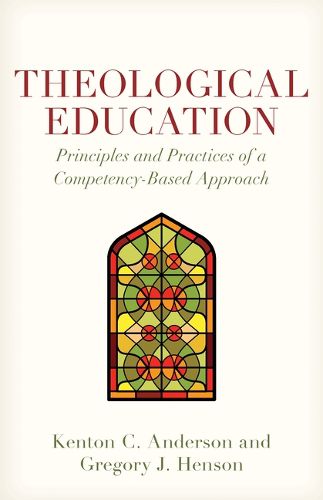Readings Newsletter
Become a Readings Member to make your shopping experience even easier.
Sign in or sign up for free!
You’re not far away from qualifying for FREE standard shipping within Australia
You’ve qualified for FREE standard shipping within Australia
The cart is loading…






Discover the beauty of theological institutions and churches working with and for one another, Theological Education demonstrates how churches and seminaries can cooperate through a competency-based learning approach to ministry preparation--that is, competency-based theological education (CBTE). CBTE focuses on the mutual mission of the church and theological education: developing followers of Christ who flourish in their vocations. This first book-length treatment of CBTE lays the groundwork for expansion and refinement as theological schools and churches move together in partnership, exploring:
principles that ground successful CBTE cooperation, such as collaborative mission, contextualized discipleship, and holistic assessment; and practices that a CBTE approach requires, such as affordable programs, flexible technology, and continuous improvement.
Using the CBTE model means seminaries can provide practical ministry training together with churches who invest in the theological education of those who minister among them.
$9.00 standard shipping within Australia
FREE standard shipping within Australia for orders over $100.00
Express & International shipping calculated at checkout
Discover the beauty of theological institutions and churches working with and for one another, Theological Education demonstrates how churches and seminaries can cooperate through a competency-based learning approach to ministry preparation--that is, competency-based theological education (CBTE). CBTE focuses on the mutual mission of the church and theological education: developing followers of Christ who flourish in their vocations. This first book-length treatment of CBTE lays the groundwork for expansion and refinement as theological schools and churches move together in partnership, exploring:
principles that ground successful CBTE cooperation, such as collaborative mission, contextualized discipleship, and holistic assessment; and practices that a CBTE approach requires, such as affordable programs, flexible technology, and continuous improvement.
Using the CBTE model means seminaries can provide practical ministry training together with churches who invest in the theological education of those who minister among them.